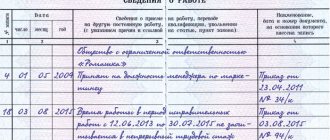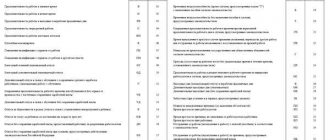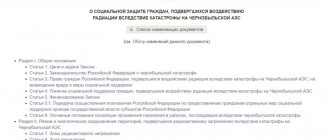In legal practice, the most frequently encountered issues are the provision of benefits for working women. Chapter 41 of the Labor Code of the Russian Federation (LC RF) is devoted to the peculiarities of regulating their labor. Labor legislation provides for the right to a shorter working day, additional vacations and days off. The expenses incurred by the enterprise when paying for benefits are partially compensated by the Social Insurance Fund. However, the company is obliged to provide some of them at its own expense.
Harmful working conditions
Article 253 of the Labor Code of the Russian Federation establishes restrictions on the use of women in heavy work and in harmful and dangerous working conditions. The list of hard and hazardous work was approved by Decree of the Government of the Russian Federation of February 25, 2000 No. 162. As follows from the List, a woman should not, for example, clean tanks that previously contained petroleum products. Underground work directly associated with heavy loads is also indicated. But a woman can hold the position of engineer or doctor at such an enterprise. The full list of non-prohibited positions is given in paragraph 2 of the note to the mentioned resolution.
Overtime
If a woman is pregnant, the organization does not have the right to involve her in overtime work, call her on night shifts and weekends, or send her on business trips (Article 259 of the Labor Code of the Russian Federation). This also applies to women who have children under three years of age. However, the administration may ask young mothers to work overtime, provided that this is not prohibited for medical reasons, and also inform them in writing that they can refuse to work. If she agrees, the employee must provide written confirmation. If a woman is raising a child alone, then benefits are provided until he turns five years old (Article 96 of the Labor Code of the Russian Federation). Article 298 of the Labor Code of the Russian Federation establishes restrictions on involvement in work on a rotational basis. Namely: pregnant women and those who have children under three years old cannot be sent to such work.
Labor rights of women with children
11/10/2015 No country in the world has such a long parental leave as in the Russian Federation.
According to the law, our women can stay at home while maintaining their jobs until the child reaches the age of 3 years. However, in fact, many mothers go to work earlier than expected. Everyone has their own reasons for this - lack of money, unwillingness to sit at home or lose qualifications, etc. Therefore, every woman who has a child should know her rights guaranteed to her by the Labor Code of the Russian Federation: The specifics of regulating the labor of women and persons with family responsibilities are established by Chapter 41
of the Labor Code of the Russian Federation
(hereinafter referred to as the Labor Code of the Russian Federation).
Article 253
restrictions have been established on the use of women in heavy work and in harmful and dangerous working conditions. The list of heavy and hazardous work was approved by Decree of the Government of the Russian Federation of February 25, 2000 No. 162.
In accordance with Article 254 of the Labor Code of the Russian Federation
, women with children under the age of one and a half years, if it is impossible to perform the previous job, are transferred at their request to another job with wages for the work performed, but not lower than the average earnings for the previous job until the child reaches the age of one and a half years.
Also, working women with children under the age of one and a half years are provided with additional breaks to feed the child (children) at least every three hours, lasting at least 30 minutes each ( Article 258 of the Labor Code of the Russian Federation
)
If a working woman has two or more children under the age of one and a half years, the duration of the feeding break is set at least one hour.
At the request of the woman, breaks for feeding the child (children) are added to the break for rest and nutrition, or in aggregate form are transferred both to the beginning and to the end of the working day (work shift) with a corresponding reduction.
Breaks for feeding a child (children) are included in working hours and are subject to payment in the amount of average earnings.
Article 259
guarantees that women who have children under the age of three do not have the right to be involved in overtime work, called on night shifts and weekends, or sent on business trips without their written consent. If a woman is raising a child alone, then benefits are provided until he turns five years old (Article 96 of the Labor Code of the Russian Federation). Article 298 of the Labor Code of the Russian Federation establishes restrictions on involvement in work on a rotational basis. Namely: pregnant women and those who have children under three years old cannot be sent to such work.
Guarantees provided for in part two of Article 259
, are also provided to mothers and fathers raising children under the age of five without a spouse, employees with disabled children, and employees caring for sick members of their families in accordance with a medical report.
Article 260
allows a young mother to receive annual paid leave immediately after the end of maternity leave, regardless of her length of service with a given employer.
A woman has the right to ask for a part-time or part-time work week. He has the right to make such a request when he gets a job, or later, in case of illness of the child. The administration is obliged to satisfy the employee’s request if he is no more than 14 years old, and the disabled child is under 18 years old. The same rule applies to pregnant women ( Article 93 of the Labor Code of the Russian Federation
). In this case, the salary is calculated in proportion to the time worked or according to production. It should be noted that the Labor Code of the Russian Federation does not limit the number of hours by which working time can be reduced. Therefore, the employer agrees on how much shorter the working day will be than usual. Part-time work does not entail any restrictions on the duration of annual paid leave, calculation of length of service and other rights.
In addition, the collective agreement may establish additional leaves without pay for working women for up to 14 calendar days. Single mothers raising minor children, as well as women who have two or more children under 14 years of age (one disabled child under 18 years of age) have the right to them. The specified leave, upon the written application of the employee, can be added to the annual paid leave or used separately in full or in parts. Transferring this leave to the next working year is not allowed. This norm is established by Article 263 of the Labor Code of the Russian Federation
.
A woman working in a rural area, upon application, can receive one additional day off per month without pay.
The Labor Code of the Russian Federation protects
women with children from job loss.
Thus, clause 4 of article 261 of the Labor Code of the Russian Federation
determines the impossibility of terminating an employment contract at the initiative of the employer with a woman who has a child under three years of age, a single mother raising a child under 14 years of age (a disabled child under 18 years of age).
Dismissal of the above categories of employees is possible only in cases of liquidation of the organization or termination of activities by an individual entrepreneur, as well as the commission by the employee of guilty actions for which the Labor Code of the Russian Federation provides for the right of the employer to terminate the employment contract on his own initiative
For violation of the requirements of the Labor Code of the Russian Federation in the field of regulation of women's labor, employers may be held accountable.
The main ways to protect labor rights and freedoms are:
- self-defense of labor rights by employees;
- protection of labor rights and legitimate interests of workers by trade unions;
- state control (supervision) over compliance with labor legislation and other regulatory legal acts containing labor law norms;
- judicial protection.
Part time
A woman with a child can ask for a part-time or part-time working week. She has the right to make such a request when she gets a job, or later, in case of illness of the child. The administration is obliged to satisfy the employee’s request if he is no more than 14 years old, and the disabled child is under 18 years old. The same rule applies to pregnant women (Article 93 of the Labor Code of the Russian Federation). For other employees, a shortened working day or part-time work week may not be mandatory, but by mutual agreement. In this case, the salary is calculated in proportion to the time worked or according to production. It should be noted that the Labor Code of the Russian Federation does not limit the number of hours by which working time can be reduced. Therefore, the employer agrees on how much shorter the working day will be than usual. Part-time work does not entail any restrictions on the duration of annual paid leave, calculation of length of service and other rights.
According to Article 258 of the Labor Code of the Russian Federation, women with children under one and a half years old are given not only a general lunch break, like all employees, but also an additional one for feeding the child, lasting at least 30 minutes. If the employee has two or more children under the age of one and a half years, then - at least an hour. Moreover, such breaks must be provided every three hours of continuous work. The employee can add breaks for feeding the child to lunch time or move them to the beginning or end of the working day, thereby shortening it. They are included in working hours and paid based on average earnings, which are calculated in accordance with the article of the Labor Code of the Russian Federation. To calculate average earnings, you need to add up the employee's salary for the last 12 months. Divide the resulting amount by the time actually worked during the given period. You can learn more about this by reading the Regulations on the specifics of the procedure for calculating average wages, approved by Decree of the Government of the Russian Federation of April 11, 2003 No. 213.
Legislation
Part-time work in Russia is understood as a form of human employment when the total working day is set less than what the employee must work by law.
This form can be set:
- when hiring an employee;
- subsequently during the work process.
This form of employment is regulated by the Labor Code in Article 93. However, there is no complete explanation of this concept.
But it can be found in the International Labor Convention. And it says that this working time is less in duration than the established standard working day.
The Labor Code provides for the organization of work in the following modes:
- Reducing the length of a work shift or day by a certain number of hours.
- Reducing the number of working days in a week, but with a standard number of working hours per working day.
- Reducing the number of working hours per day and days per week.
It is important not to confuse a shortened day with an incomplete one. A shortened day is considered when a particular employee is legally entitled to work full time, but due to certain circumstances cannot do so.
And part-time work is established for those categories of citizens who, due to their age, health or harmfulness of the work itself, according to the law, should not work more than the established amount of time.
That is, a reduced number of working hours per day is the norm for them.
Who is eligible?
According to Article 93 of the Labor Code of the Russian Federation, the following categories of citizens have the right to demand a shortened day:
- parents of children under 14 years of age;
- persons caring for a sick relative;
- pregnant women.
All circumstances must be documented. To draw up such a schedule, simply write a statement to your manager and indicate the reason in it.
Not only the woman, but also the father of the child, as well as guardians, can be considered as a parent.
Disabled children
Women who have disabled children under the age of 18 are entitled to four additional paid days off per month. The benefit is provided for in Article 262 of the Labor Code of the Russian Federation. To provide it, the employee must write an application addressed to the head of the organization. Additional days off are paid in the amount of daily earnings from the Social Insurance Fund. This procedure is defined in the joint letter of the Ministry of Labor of Russia No. 296-AP and the FSS of Russia No. 02-08/05-762 P dated April 5, 2002.
Working day for a woman with a child under 3 years old
Based on Article 254 of the Labor Code of the Russian Federation, employees with children under one and a half years old are transferred to another position. Or their production standards are reduced in order to optimally combine work and caring for a small child, while maintaining pay at the average rate for their previous position. And in accordance with Article 258 of the Labor Code of the Russian Federation, women are also given a break for breastfeeding lasting half an hour, also paid, with the possibility of transferring it to the end of the working day.
Based on Article 72.1 of the Labor Code of the Russian Federation, it is possible to transfer an employee to another place of work due to production needs with his consent, which implies initiative on the part of the employer. But if necessary, a woman can also become the initiator. Based on Article 254 of the Labor Code of the Russian Federation, she has the right, by way of transfer, to apply for another position with easier working conditions if her child is under one and a half years old.
Pregnancy and childbirth
In accordance with Article 254 of the Labor Code of the Russian Federation, the administration is obliged to transfer a pregnant woman, at her request, to an easier job than her previous one, or to reduce her production rate. The basis for the transfer is a medical certificate and an application from the employee. After which the employee retains the average salary at her previous place of work. If the documents are presented, she may not go to work until she is provided with easier working conditions than before. The organization pays for missed days based on average earnings. By the way, women who have children under the age of one and a half years also have the right to demand easier work. After the transfer, the average earnings are maintained until the child turns one and a half years old.
Maternity leave with payment of state social insurance benefits in the amount established by law at the expense of the social insurance fund is provided to women upon their application and in accordance with a medical report (Article 255 of the Labor Code of the Russian Federation). According to the federal law of May 19, 1995 No. 81-FZ “On state benefits for citizens with children” (as amended and supplemented), maternity benefits are established at the place of work for employees who are subject to state social insurance in the amount of average earnings (income ). However, Federal Law No. 25-FZ of February 8, 2003 “On the budget of the Social Insurance Fund of the Russian Federation” limits the amount of this benefit - no more than 11,700 rubles per month. The payment procedure is specified in the Regulations on the procedure for providing benefits for state social insurance, approved by Resolution of the Presidium of the All-Union Central Council of Trade Unions dated November 12, 1984 No. 13–6, and in the letter of the Social Insurance Fund of the Russian Federation dated February 18, 2002 No. 02–18/05/1136. These documents state that maternity benefits are assigned and paid for working days missed during maternity leave, and are calculated by multiplying the daily benefit by the number of specified days. And the daily allowance is based on the average daily earnings: the amount of earnings is divided by the number of all working days of the month (according to the schedule) falling on maternity leave.
The duration of maternity leave is 140 calendar days (70 days before childbirth and 70 days after), in the case of multiple pregnancy - 194 calendar days (84 days before childbirth and 110 days after). A woman can be on maternity leave until the child turns three years old (Article 256 of the Labor Code of the Russian Federation). Moreover, while on vacation, she can work from home or go to work part-time. And regardless of whether she works or not, she will receive benefits from the funds of the Russian Social Insurance Fund.
What is the difference between short and part-time working hours?
The main difference is that with a shortened regime, the salary is retained in the full amount of the monthly salary, and with an incomplete one, labor is paid based on the hours worked or the volume of products produced.
To ensure a shortened work schedule, an employee does not need to contact management with a statement or ask him to grant the request to provide him with the opportunity to work under reduced hours. The legislation determines the categories of workers who are automatically provided with these conditions.
As for the part-time regime, it is introduced by the intention of one of the parties to the employment contract. It is approved immediately upon hiring (for example, the employer indicates in the vacancy that it is looking for a part-time specialist) or later, when appropriate circumstances arise.
Part-time working hours are established by agreement between the employee and the employer.
Part-time work is a form of working less than the standard working day (40 hours per week). It is established immediately upon hiring or later, due to emerging circumstances (Article 93 of the Labor Code of the Russian Federation).
- Reducing the number of days in a work week.
- A change in the direction of reducing the number of working days per week while maintaining the normal work shift.
- Reducing the number of days of the week and working hours per shift.
- pregnancy;
- the need to care for a seriously ill person;
- illness of a child under 14 years of age.
We invite you to familiarize yourself with Guardianship of a Child Over 14 Years of Age with Living Parents
Drawing up a report card for part-time work requires compliance with certain rules. Such a day is noted in the timesheet under the code “NS” or “25”; the choice of code is at the employee’s discretion.
There are a number of cases allowing the transition to part-time work, when the employer cannot refuse:
The mother of a sick child has the right to part-time work
Payment Features
Salary for a part-time day is calculated either for the time actually worked, or for the volume of products produced (Article 93 of the Labor Code of the Russian Federation).
The payment method is reflected in the employment contract. Based on the basic provisions, the salary due to an employee working in this mode is calculated.
Loader A.N. Seryogin, an employee of Alma LLC, has been transferred to part-time work. Seryogin's monthly salary is 35,000 rubles. Let's calculate how much he will receive with a part-time working week and day.
1 calculation option. From October 1 to November 30, 2020, the working week is 4 days.
- Calculation for October:
- In October - 18 working days instead of 22.
- Salary for October: 35,000: 22 x 18 = 28,636 rubles.
- Calculation for November:
- In November - 17 working days instead of 21
- Salary for November: 35,000: 21 x 17 = 28,333 rubles.
2 calculation option. From October 1 to October 30, 2020, Seryogin works part-time for 6 hours a day, instead of 8.
In October - 22 working hours. day. For a full shift, this is 176 workers. hour. (22 x 8 = 176 hours).
For a part-time day - 132 working hours. hour. (22 x 6 = 132 hours)
Salary is calculated in proportion to time worked
Short Mode
The reduced regime is established on the basis of mutual consent of the subjects of labor relations, its main aspects are reflected in the document (agreement, contract, agreement) (Article 320 of the Labor Code of the Russian Federation).
The eve of the holiday is a preparatory day, so its shortened version represents an opportunity to prepare for the celebration. This norm is established at the state level and is mandatory.
If the enterprise has a specific nature in which it is not possible to shorten the pre-holiday day by at least 1 hour, this time is compensated by additional days off or monetary compensation.
When the air temperature is above normal, the working day is shortened or stopped
With a 6-day work week, the day before the holiday lasts 5 hours.
There are situations when the length of working hours is influenced by factors that go beyond sanitary requirements. At various enterprises there are specific conditions, for example, increased temperature conditions.
If the norm from 21 to 28 degrees is exceeded, for every half a degree of excess there is a reduction of 1 hour. For example, an atmosphere with a temperature of 30 degrees provides for a reduction of up to 5 hours in the working day. The limit is 32.5 degrees Celsius.
It is prohibited to work at temperatures above this limit.
Not every enterprise provides a reduced weekly norm of 36 hours. Sometimes the specifics of work require different approaches, for example, when working in shifts, summarized accounting is used. Every second week is reduced by one paid day.
In addition to these, there are several more categories whose reduced operating hours are legalized by individual federal laws. This refers to workers employed at chemical weapons production enterprises, doctors involved in serving HIV-infected people, tuberculosis patients, etc.
Holiday to care for the child
Parental leave is counted towards the total and continuous work experience, as well as into the work experience in the specialty (except for cases of granting a pension on preferential terms). In this regard, it is necessary to remember that in accordance with the Federal Law of December 17, 2001 No. 173-FZ “On Labor Pensions in the Russian Federation”, the insurance period includes the period of caring for each child until he reaches the age of one and a half years, but not more than three years in total.
In addition, working women can take advantage of additional leave without pay. It is required to be provided to single mothers raising minor children, as well as women who have two or more children under 14 years of age (one disabled child under 18 years of age). This norm is established by Article 263 of the Labor Code of the Russian Federation. Other employees are granted additional leave by agreement with the head of the enterprise. It should be noted that before, immediately after, or at the end of maternity leave, a woman can, at her own request, take annual paid leave, regardless of her length of service in a given organization (Article 260 of the Labor Code of the Russian Federation).
Working hours for the mother of a child under 3 years old
This right of her follows from the second part of Art. 256 Labor Code of the Russian Federation. Thus, in the above situation, the woman will in any case be able to demand that the employer establish part-time working hours for her on the basis of part one of Art. 93 or parts of the third article. 256 of the Labor Code of the Russian Federation, having gone on parental leave. The establishment of a part-time working regime in both the first and second cases is formalized as an additional agreement to the employment contract (part two of Article 57, Article 100, Article 72 of the Labor Code of the Russian Federation).
Is an organization obliged to establish a shortened working day at the request of a woman who has a child under three years of age? What are the consequences for the manager and the organization in case of failure? Answer: Having considered the question, we came to the following conclusion: Depending on the specific circumstances, a woman may request the establishment of part-time work on the basis of part one of Art. 93 or parts of the third article. 256 Labor Code of the Russian Federation (Labor Code of the Russian Federation). The employer has no right to refuse this. A woman can demand that her working hours be reduced if she belongs to the categories of workers specified in Art. 92 Labor Code of the Russian Federation. Rationale for the conclusion: According to Art. 92 of the Labor Code of the Russian Federation, reduced working hours are established for workers under the age of eighteen, for workers who are disabled people of group I or II, for workers employed in work with harmful or dangerous working conditions.
Hiring and firing
As for benefits in matters of hiring or dismissal from work, Article 70 of the Labor Code of the Russian Federation prohibits the establishment of a probationary period for pregnant women. The conclusion of an employment contract also cannot be refused for reasons related to pregnancy or the presence of children (Article 64 of the Labor Code of the Russian Federation).
The Labor Code of the Russian Federation protects pregnant women with children and from job loss. Firstly, a pregnant employee is not fired, except in cases of liquidation of the organization. Secondly, if during a woman’s pregnancy a fixed-term employment contract concluded with her earlier expires, the employer is obliged, at her request, to extend its term until maternity leave begins. And thirdly, an employer cannot fire a woman if she has children under three years old or is raising a child under the age of 14 alone or a disabled child under 18 years old. Termination of an employment contract at the initiative of the employer with the mentioned employees is possible in the following cases:
- liquidation of the organization;
- inconsistency with her position or work performed due to health reasons (medical report);
- repeated failure to fulfill job duties without good reason and in the presence of a disciplinary sanction;
- single gross violation of labor duties (clause 6 of Article 81 of the Labor Code of the Russian Federation);
- commission of guilty actions by an employee directly servicing monetary or commodity assets, which give rise to a loss of confidence in her on the part of the employer;
- the commission by an employee performing educational functions of an immoral act incompatible with the continuation of this work;
- a single gross violation by the head of the organization or his deputy of their labor duties;
- submission by an employee of forged documents or knowingly false information when concluding an employment contract.
Thus, labor legislation establishes a certain list of benefits for working women, the provision of which is guaranteed by the state and is established in all organizations, regardless of the form of ownership. For violation of the requirements of the Labor Code of the Russian Federation in the field of regulation of women's labor, employers may be held accountable. In particular, Article 145 of the Criminal Code of the Russian Federation provides for criminal liability for unjustified refusal to hire or unjustified dismissal of a pregnant woman or a woman with children under three years of age.
Sergey Krikunov, senior legal adviser at the Center for Research on Labor Legislation Problems Article from the magazine “Work & Salary”
Personnel portal
Women with children under the age of one and a half years , if it is impossible to perform their previous work, are transferred to another job at their request. At the same time, until the child reaches the age of one and a half years, wages must not be lower than the average earnings at the previous place of work (Article 254 of the Labor Code of the Russian Federation).
Currently, there is a Regulation on the procedure and conditions for the use of labor for women who have children and work part-time, approved by Resolution of the USSR State Committee on Labor and Social Issues of the Secretariat of the All-Union Central Council of Trade Unions dated April 29, 1980 No. 111/8-51 ( hereinafter referred to as Regulation No. 111/8-51) to the extent that it does not contradict current legislation.









